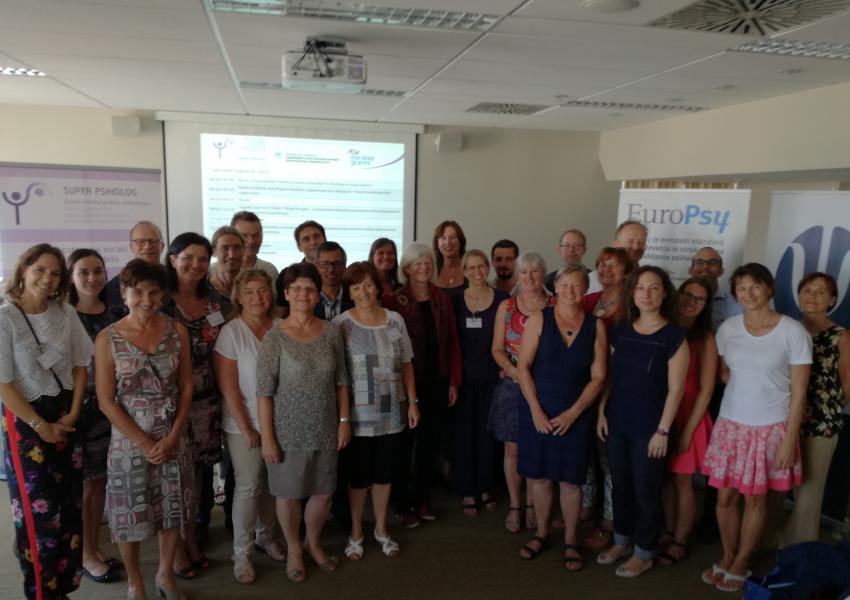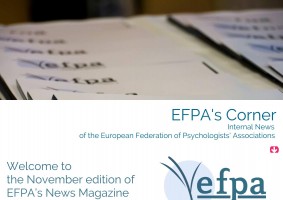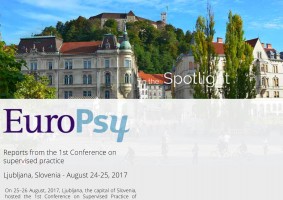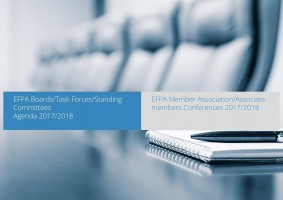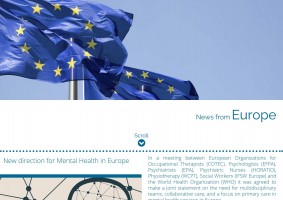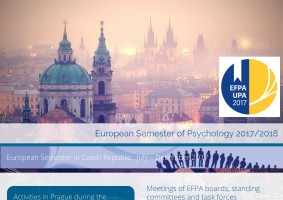
On 25–26 August, 2017, Ljubljana, the capital of Slovenia, hosted the 1st Conference on Supervised Practice of Psychologists. The conference was organised by University of Ljubljana, Norwegian Psychological Association, Slovenian Psychologists’ Association, University of Primorska, and ISA institute, as an extension of the SUPER PSIHOLOG project carried out within the Norway Grants 2009–2014.
The conference was organised under the auspices of the EuroPsy European Awarding Committee and financially supported by the Norway Grants programme, Slovenian Government Office for Development and European Cohesion Policy, and EFPA.
_w850_h598_1.jpg)
During the last meeting of the EAC, Ingrid Lunt (UK), chair of the EuroPsy EAC, passed the torch to Rosaleen McElvaney (Ireland), who was previously chair of the Specialist EAC for Psychotherapy. Rosaleen’s successor and new chair of the Specialist European awarding committee for Psychotherapy (SEAC PT) is Nady Van Broeck from Belgium. The EuroPsy European Awarding committee (EAC) is composed as follows: Rosaleen McElvaney (Ireland): chair Vlasta Zabukovec (Slovenia): member Ype Poortinga (Netherlands): member Salvatore Zappala (Italy): liaison for the SEAC Work and Organisation Psychology Nady Van Broeck (Belgium): liaison for the SEAC Psychotherapy
_w428_h224_1.png)
Psychotherapy is the informed and intentional application of clinical methods and interpersonal stances derived from established psychological principles for the purpose of assisting people to modify their behaviors, cognitions, emotions, and/or other personal characteristics in directions that the participants deem desirable.
- Norcross, 1990, p. 218-220
Therefore:
Psychotherapy is an area of applied psychology that is practised by the profession of
psychologists.
Psychotherapy is a practice that psychologists acquire through different education
programmes.
Psychologists practising psychotherapy have training that includes supervision and
have proven competences in scientifically validated theories on human emotions, cognitions and behaviour and on processes of development, and are trained in the scientific application of the methods of change based upon these theories.
As a healing practice and professional service, psychologists practising psychotherapy are effective and highly cost- effective. In controlled trials and in clinical practice, psychotherapy results in benefits that markedly exceed those experienced by individuals who need mental health services but do not receive psychotherapy. >>
_w850_h444_1.png)
Consequently, psychologists practising psychotherapy should be included in the health and social care system.
EFPA will continue its efforts to educate the public about the effectiveness of psychotherapy; support advocacy to enhance formal recognition of psychologists practising psychotherapy in the health and social care system; and help ensure that policies will increase access to psychologists practising psychotherapy in the health and social care system, with particular attention to addressing the needs of underserved populations.
EFPA will encourage integration of research and practice; and support advocacy for funding, and encourage continued and further research on the effectiveness and efficacy of psychotherapy.
Amsterdam, July 2017
Read the EFPA statement on psychologists practicing psychotherapy on our website

